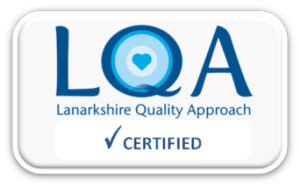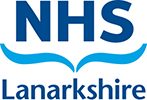Pneumothorax: a patient’s guide
Information for patients
NHS Lanarkshire Emergency Department
PIL.PNETHX.05357.H
What is a pneumothorax?
A pneumothorax is when air becomes trapped in the space between the lungs and the chest wall. This air may cause part of the lung to collapse and cause problems with breathing.
What are the symptoms of a pneumothorax?
- A sudden sharp pain in the chest, which is made worse by breathing in.
- Shortness of breath.
How is pneumothorax diagnosed?
The doctor will have listened to your symptoms and examined your chest with a stethoscope. A chest X-ray will have been undertaken to diagnose the pneumothorax.
How is it treated?
Small pneumothoraces often don’t require any treatment. Your lung will begin to repair itself over the course of a few days to stop the leak and the trapped air will be reabsorbed back into the bloodstream over time. We will give you painkillers if you are in pain. Before you leave the department we will give you an appointment to return to the follow-up clinic.
Follow-up clinic
You will be examined again and have a repeat chest x-ray to check that the amount of air has not increased. If all is well you will be discharged.
If the amount of air has increased you may need further treatment and be admitted to hospital.
You may require an aspiration. A local anaesthetic is applied to the chest and a thin needle put through into the space between the chest wall and the lung, this allows the air to be released. If the aspiration fails, you will need a chest drain put in and you will need to stay in hospital.
Is there any advice?
- When you have been discharged from clinic you should not fly for at least six weeks. If you have underlying lung disease it is suggested to avoid flying up to one year after.
- DO NOT scuba dive after a pneumothorax – speak to your GP for advice.
- Smoking increases your risk of a pneumothorax occurring. Stopping is the best way to prevent this. Your GP can advise you on services available to help you stop.
- If your symptoms get suddenly worse; for example increasing chest pain, becoming more breathless or worsening cough, come back to the Emergency Department.
Where can i find out more about pneumothorax?
- http://www.blf.org.uk/conditions/ detail/pneumothorax
- http://www.patient.co.uk/ health/pneumothorax-leaflet
If you require further advice you can contact your GP or if you require advice out of hours, contact NHS Inform on 0800 22 44 88.
If you are not able to walk on your foot after seven days you should contact:
Emergency Department
- University Hospital Hairmyres – 01355 584716
- University Hospital Monklands – 01236 712191
- University Hospital Wishaw – 01698 366630
- NHS 24 – 111

Pub. date: April 2022
Review date: April 2024
Issue No: 03
Reference: PIL.PNETHX.05357.H
22_05039
If you need this information in another language or format, please e-mail:





